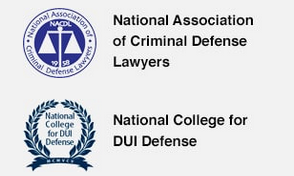Trials in DUI Cases
Lawyers Defending Phoenix Area Residents Against Drunk Driving Charges
Most DUI cases do not go to trial. Going to trial is both risky and expensive. Only a small percentage of these cases go to trial, and some that seem to be going to trial settle at the last minute with a plea deal. A small proportion of deals involve dismissal of the DUI case, and many are deals involving an agreement to take a plea in exchange for a lighter sentence. Seasoned Phoenix DUI attorney James E. Novak represents individuals facing charges for drunk driving offenses. He is well versed in the nuances of plea negotiations as well as trial proceedings in DUI cases, and is available to answer your questions.
Trials in DUI Cases
The outcome of any given trial can be very uncertain. Additionally, it is costly to go to trial, and it often isn’t worth it to go through trial where there isn’t a reasonably good probability of winning. While it’s important to prepare your case as if you’re going to take it to trial, in many situations, it is important to seriously consider a plea deal if that’s been offered to you.
At trial, the prosecuting attorney will need to prove their case beyond a reasonable doubt. Certain cases are stronger than others. For example, if you were arrested for DUI because you were sleeping in your car in a parking lot after drinking, you may have a higher likelihood of getting those DUI charges dismissed. In other cases, it may be possible to get charges dismissed through a pretrial motion in limine because there was an illegal search or seizure, or there are other constitutional defenses available. For example, if you were pulled over and the officer didn’t have a reasonable suspicion that you’d committed a crime, you may be able to get evidence obtained during the detention suppressed under the Fourth Amendment. Being able to get evidence suppressed before trial improves your bargaining position. When certain critical pieces of evidence are suppressed, it may be possible to secure a dismissal and avoid going to trial at all. Sometimes certain evidence is suppressed through a pretrial motion, but the prosecutor doesn’t see the case as substantially weakened, and in that case, it may be better to proceed to trial rather than take a plea deal that’s not favorable enough.
Plea Agreements
Prosecutors are not required to give plea deals, but they are encouraged to pursue these agreements and offer diversion programs for the purpose of conserving resources. Often defendants are faced with the decision of whether to go forward to trial or accept a plea deal. In some cases, the plea deal involves participation in a deferred prosecution program. Most defendants will choose to take a plea deal, especially if there is a threat of harsh sentencing, as there is for felony DUIs. In some situations, statements made in order to obtain deferred sentencing or a plea can be used against you if the charge proceeds to trial; it is wise to retain an experienced attorney to handle the negotiations.
Risks of Sentencing
One of the risks of going to trial in DUI cases is that there are required sentencing ranges. Even if you are convicted of a misdemeanor, you will spend at least one day in jail and up to 6 months in jail. Where you’re charged with a felony DUI, you can face a minimum of 4 months in jail and up to 2.75 years. The judge doesn’t have discretion to go lower once you’re convicted, which means that under certain circumstances it is very important to focus on getting a plea deal rather than going to trial and facing harsher penalties.
Retain a Skilled DUI Defense Attorney in Phoenix
If you are concerned about going to trial in a DUI case, a knowledgeable criminal defense lawyer can help. Mr. Novak may be able to evaluate your situation and strategize to develop your defense. Mr. Novak represents those faced with DUI charges in and around the Phoenix area, including in Gilbert, Chandler, Mesa, and across Maricopa County. Call him at (480) 413-1499 or contact us via our online form.






















